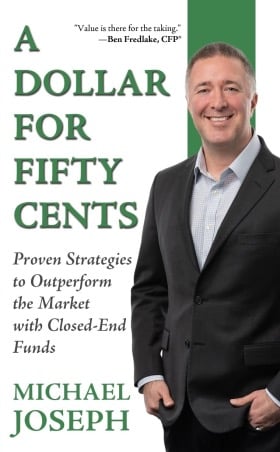“Exigencies are to be expected to occur, in the affairs of nations, in which there will be a necessity for borrowing. That loans in times of public danger, especially from foreign war, are found an indispensable resource, even to the wealthiest of them . . . it is essential that the credit of a nation should be well established . . . Persuaded as the Secretary is, that the proper funding of the present debt, will render it a national blessing Yet he is so far from acceding to the position ,in the latitude in which it is sometimes laid down: ‘public debts are public benefits,’ a position inviting to prodigality, and liable to dangerous abuse — that he ardently wishes to see it incorporated, as a fundamental maxim, in the system of public credit of the United States, that the creation of debt should always be accompanied with the means of extinguishment. (Emphases added)” — Alexander Hamilton, “The First Report on Public Credit“
The United States hit its $31.4-trillion debt ceiling on 19 January 2023, a limit Congress approved only two years ago. The US Treasury is now taking extraordinary emergency measures to prevent the nation from defaulting.
The current battle over the debt ceiling reveals a painful reality that the nation must confront. There are two important principles at stake, both of which Alexander Hamilton references in the quote above. The first is that maintaining US creditworthiness is essential to the nation’s economic health. To voluntarily default on the federal debt would compromise the very foundation of the country’s economic success. The second is that the current path of unsustainable fiscal deficits could lead to an involuntary default in the years ahead that would be just as catastrophic.
These uncomfortable truths have some critical implications:
1. Public Debt Isn’t What It Used to Be
In 1790, the survival of the United States was far from certain. The country had won the Revolutionary War and ratified the Constitution, but its finances were in disarray. The states and the federal government couldn’t service their war debt or even pay their veterans. This affected the performance of the nation’s economy and the government’s ability to regulate it. But Hamilton, the first secretary of the Treasury, understood the essential role that the integrity of the nation’s credit played in ensuring economic prosperity. He coordinated the passage of several regulations that restored the nation’s creditworthiness. These programs included the consolidation of war debt under the federal government, the institution of tariffs to fund outstanding debt payments, and the creation of a central bank.
Without these measures, the United States may not have had the financial wherewithal to endure the “exigencies” to which Hamilton referred. Adhering to Hamiltonian financial principles helped the United States persevere through the War of 1812, the Civil War, and World War I.
When these exigencies ended, the country abided by Hamilton’s second principle and ran federal budget surpluses to extinguish the debt. But that changed after World War II. Initially, the United States paid down its debt as it had before, but by the 1960s permanent peacetime deficits had become the norm. Over the next decade, this trend is expected to continue with the deficit averaging 5% of GDP per year, according to the Congressional Budget Office (CBO)’s 2022 estimate. Such a trajectory is impossible to maintain indefinitely, yet the aging population and secular declines in productivity threaten to make the problem even worse beyond 2032.
US Federal Budget Deficit as a Percentage of GDP, 1791 to 2022

Why did the United States change its philosophical approach to public credit? One reason is simply that it could. The US dollar became the world’s reserve currency after the Bretton Woods Agreement in 1945, and US Treasuries became an essential store of value for central banks and savers across the world. The massive expansion of entitlement programs also played a role. This is not a political judgment: These programs have real social benefits, but the corresponding costs exceed the nation’s ability to fund them. According to the Congressional Budget Office (CBO), Social Security and health care programs like Medicare and Medicaid account for much of the federal budget. By 2032, they will account for well over 50% and their costs will only grow as the population ages.

2. Don’t Make the Cure Worse Than the Disease
The United States cannot amass debt faster than the US economy grows forever. But it can for quite a while longer. So defaulting on the debt by refusing to raise the debt limit constitutes an unforced, self-inflicted wound. At the height of the 2008 global financial crisis (GFC), Congress initially voted down the Troubled Asset Relief Program (TARP), which immediately caused the panic to intensify. In a second vote, the measure passed and TARP helped restore faith in the US financial system. No one knows what would have happened if the second attempt had failed, but it would have been disastrous.
The same is true for the debt ceiling. The United States has never defaulted on its public debt, so we can’t predict the consequences. But they will be severe. The possibility of a default in the more distant future is a risk that must be addressed, but a voluntarily default would be the financial equivalent of driving a car off a cliff rather than run out of gas.
The Disadvantages of a Divided Nation
US political divisions are at a cyclical high, but they have been worse. After all, the nation went to war with itself in 1861. Nevertheless, the threat to US financial stability demands a unified effort. The longer unsustainable debt accumulation goes on, the more severe the consequences and the more draconian the countermeasures will ultimately have to be. As unwise as a voluntarily default in 2023 might be, it would be equally irresponsible to saddle future generations with debts they cannot afford or that will require dramatic reductions in their living standards to repay.

Through wars, panics, depressions, pandemics, and natural disasters, the United States has always managed to bring a divided people together to counter these threats. This unity has sometimes been reluctant and the degree of sacrifice unfairly distributed, but it has always accomplished the desired objectives for the whole.
The decline and collapse of great powers throughout history prove that there are no guarantees that the next existential crisis the United States faces won’t be its last. The solutions to the debt problem will be painful and require sacrifice. Only time will tell whether the United States will meet the challenge or succumb to decline like so many empires before it.
If you liked this post, don’t forget to subscribe to the Enterprising Investor.
All posts are the opinion of the author. As such, they should not be construed as investment advice, nor do the opinions expressed necessarily reflect the views of CFA Institute or the author’s employer.
Image credit: ©Getty Images / Instants
Professional Learning for CFA Institute Members
CFA Institute members are empowered to self-determine and self-report professional learning (PL) credits earned, including content on Enterprising Investor. Members can record credits easily using their online PL tracker.















